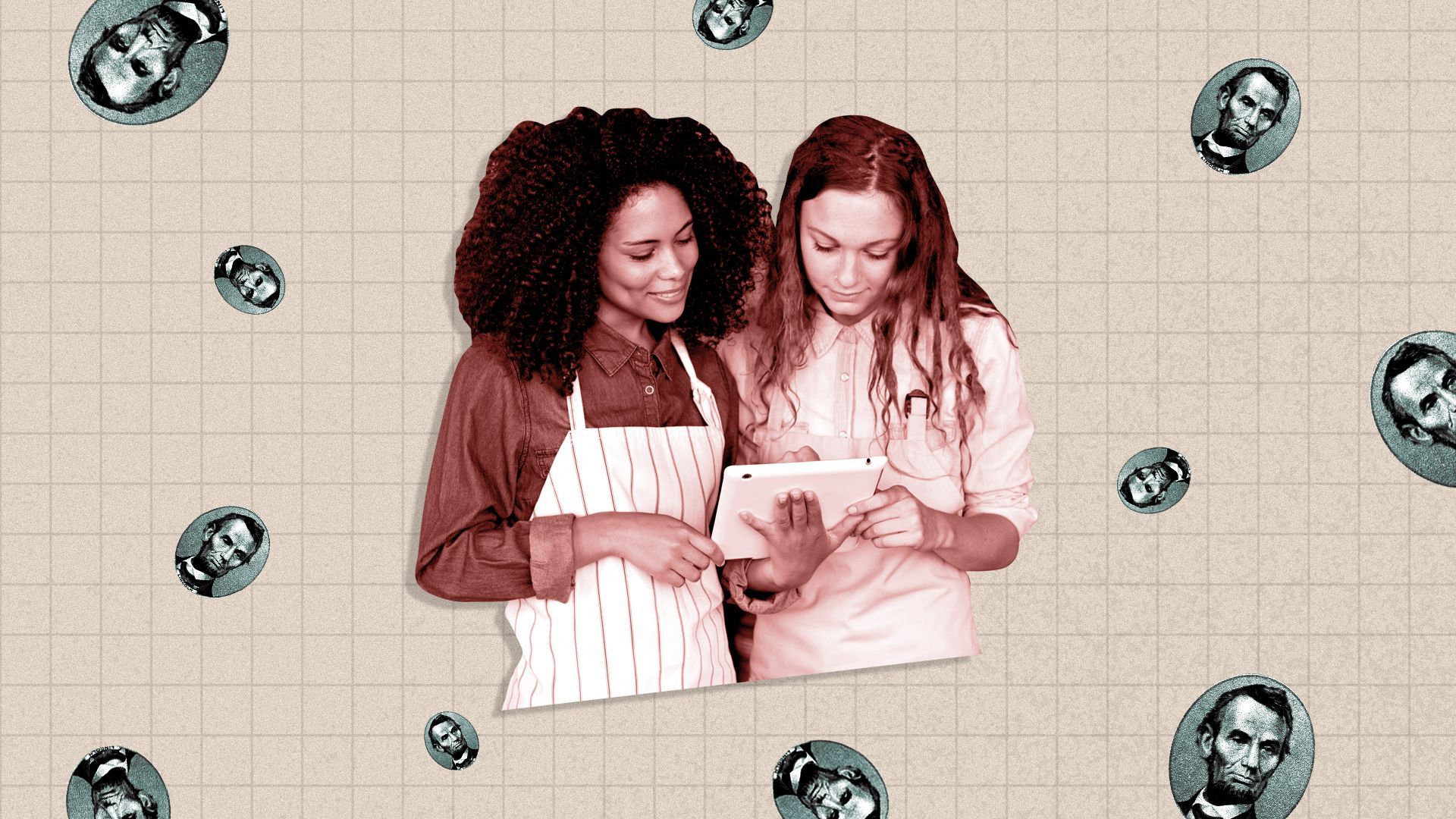The little guy behind the big brand
Add Axios as your preferred source to
see more of our stories on Google.

Illustration: Eniola Odetunde/Axios
Familiar chains that look like giant corporations are often independently owned small businesses that are getting wrecked by the pandemic alongside local mom-and-pops.
The big picture: Franchising has exploded in recent decades, with 733,000 franchise establishments employing more than 7.6 million Americans. The coronavirus closed 74% of them, according to a survey by the International Franchise Association.
Be smart: Fewer than half of all franchises are restaurants. The rest are in sectors like home health care, business services, hotels, auto repair, child care, dry cleaning, gyms, salons and spas.
- They pay a one-time fee — usually tens of thousands of dollars — to buy a franchise, then give a percentage of their sales to the parent company in exchange for national advertising support and the right to use their brand and processes.
- The franchisee is responsible for day-to-day operations, including staffing.
What they're saying: “We like to think that franchisees have these huge war chests of money, but they’re boot-strapping it. They’re small businesses that don’t have a lot of money,” Jania Bailey, CEO of franchise consultant group FranNet, told Restaurant Dive.
- “Many [franchisees] will put everything on the line — they do a 401(k) rollover, they invest their retirement fund, take second mortgages on their homes — anything and everything to get that business open. And they scrape together to get it up and operational and get cash flowing positive, and they’re starting to see a little bit of profit, and then something like this happens and it just wipes them out.”
